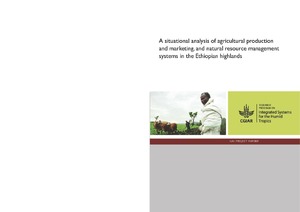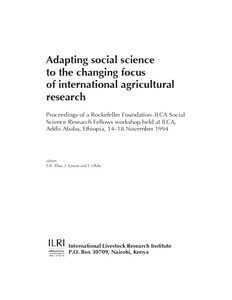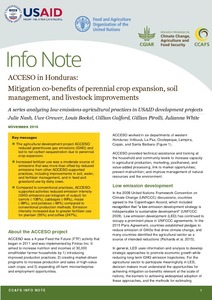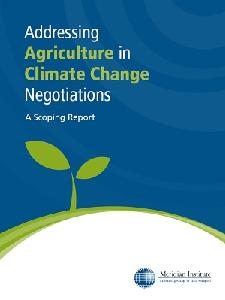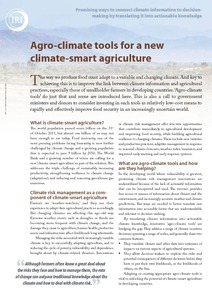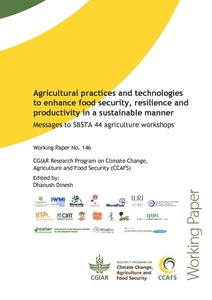Adapting social science to the changing focus of international agricultural research. Proceedings of a Rockefeller Foundation-ILCA social science research fellows workshop
The papers in this proceedings provide a cross section of science research in international agricultural research centres (IARCs), where the objectives and research foci within the Consultative Group on International Agricultural Research (CGIAR) have changed substantially in the 1990s. The book is divided in five sections. The first explores priority setting and research evaluation of commodity programmes. The second looks at institutional issues. The third explores issues related to commodity policies and food security.
A widespread facultative hemi-parasitic weed, threatening rice production in Africa
Rhamphicarpa fistulosa is a facultative hemi-parasitic plant of the Orobanchaceae family, adapted to wet soils. Apart from tropical Australia, it is only found in sub-Saharan Africa, where it is considered a minor weed in cereal crops such as rice. Due to this status, the species has received only sporadic attention. Recent field observations and encounters with rice farmers in several African countries showed that R. fistulosa is, however, a more serious and increasing production constraint than previously thought.
Adaptive, participatory and integrated assessment and agro-ecosystem analysis to support decisionmaking for water allocation for fisheries and agriculture in the Tonle Sap wetland system
Commune agro-ecosystems analysis (CAEA) is a participatory approach designed to help communities improve decision making at the commune (subdistrict) level. To better integrate fisheries considerations into the CAEA process, the CGIAR Challenge Program on Water and Food (CPWF) initiated the project that significantly improved the way fisheries issues are addressed. The use of CAEA has been officially adopted as a national policy for agricultural development.
ACCESO in Honduras: Mitigation co-benefits of perennial crop expansion, soil management, and livestock improvements
The agricultural development project ACCESO
reduced greenhouse gas emissions (GHG) and
led to net carbon sequestration due to perennial
crop expansion.
? Increased fertilizer use was a moderate source
of emissions that was more than offset by
reduced emissions from other ACCESOsupported
practices, including improvements in
soil, water, and fertilizer management, and in
feed and grassland use by dairy cows.
? Compared to conventional practices, ACCESOsupported
activities reduced emission intensity
Adding value to smallholder forage-based dual-purpose cattle value chains in Nicaragua, in the context of carbon insetting. Thesis (MSc. in Agricultural Sciences in the Tropics and Subtropics)
The thesis explores the extent to which payment for the ecosystem service of carbon sequestration
provided in a value chain context, through an innovative climate change mitigation and adaptation
strategy known as 'carbon insetting', could generate 'win-win' outcomes for all actors.
Drawing on examples of where the concept of carbon insetting has been adopted in coffee and cocoa value chains in Mexico and Honduras respectively, the thesis investigated the feasibility of
Addressing agriculture in climate change negotiations: A scoping report
This Report was developed in the context of the “Global Dialogue on Climate Change and
Agriculture,” a project facilitated by the Meridian Institute that began in August 2010. The
Meridian Institute is an internationally recognized, nonprofit organization that facilitates
neutral and independent policy dialogues and assessments. The Global Dialogue is a program
intended to provide relevant information and opportunities for productive engagement and
discussion among government negotiators, experts, stakeholders, and others involved and
Actions Needed to Halt Deforestation and Promote Climate-Smart Agriculture
Agriculture needs to feed 9 billion people by 2050. This will require a 70 100% increase in food production (Godfray et al. 2010). Given climate change, a new kind of agriculture is therefore essential, one that must meet the triple challenge not only of ensuring food security, but also of adapting to future climate change and contributing to climate change mitigation. Meeting these challenges will require coordination with the mechanism known as Reduced Emissions from Deforestation and forest Degradation (REDD+) and other efforts to conserve forests.
Addressing water-related health risks in agroecosystems
We acknowledge financial support to this research by ACIAR, DFID, ESPA, ESRC,NERC and the CGIAR Research Program on Agriculture for Nutrition and Health
Agro-climate tools for a new climate-smart agriculture
The way we produce food must adapt to a variable and changing climate. And key to achieving this is to improve the link between climate information and agricultural practices, especially those of smallholder farmers in developing countries. ‘Agro-climate tools’ do just that and some are introduced here.
Agricultural practices and technologies to enhance food security, resilience and productivity in a sustainable manner: Messages to the SBSTA 44 agriculture workshops
This paper synthesizes knowledge within CGIAR and its partners on agricultural practices and technologies to enhance food security, resilience and productivity in a sustainable manner. A number of agricultural practices and technologies which contribute to these objectives were identified and assessed to generate four key lessons.

